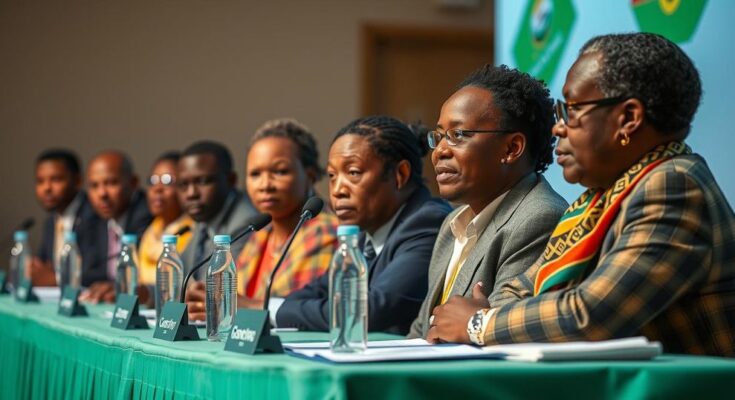COP29’s climate financing outcomes were largely disappointing for African nations, with developed countries pledging US$300 billion per year, significantly below the US$1.3 trillion required. This lack of adequate financing threatens Africa’s ability to address climate adaptation and mitigation efforts. Additionally, fossil fuel lobbying and geopolitical issues hampered progressive negotiations, complicating future climate action initiatives. As COP30 approaches, Africa must enhance its position to secure the necessary climate funds.
The recent Climate Change Conference of the Parties (COP29) revealed a significant disappointment for African nations as the pledged climate financing of US$300 billion per year by developed nations fell markedly short of the required US$1.3 trillion annually. This financing is critical for African countries to address climate-related issues, including adaptation strategies and loss compensation. Despite unfolding negotiations, African representatives, particularly from Nigeria, expressed their discontent, highlighting that the commitment equates to an insult when compared to the genuine financial requirements. The complexities of securing and implementing adequate financing face further challenges compounded by the presence of significant fossil fuel lobbying and geopolitical instability, leaving Africa in a pressing predicament as it navigates climate strategies amidst a backdrop of ongoing debt distress.
Amidst these challenges, the outcomes of COP29 were limited in that developed countries agreed on a new climate finance goal of a minimum of US$300 billion per year by 2035, alongside encouragement for wealthier developing nations to contribute. However, the realization of these financial commitments and the mechanisms, whether they involve grants, loans, or investments, remains ambiguous and may exacerbate existing debts. High inflation rates, current debt obligations exceeding climate financing, and inadequate immediate adaptation funding could hinder Africa’s recovery and resilience strategies.
The African bloc initially sought significant climate financing, echoing the findings from prior COP conferences, yet their demands did not translate into substantial commitments. The dominance of fossil fuel influences at COP29, coupled with the shifting global political landscape marked by conflicts, played a crucial role in sidelining the climate agenda. With Azerbaijan hosting the event, concerns arose regarding the commitment to energy transition, particularly in a nation heavily reliant on fossil fuels, ultimately undermining the overall effectiveness of COP29.
Going forward, the establishment of the Baku to Belém Roadmap seeks to ensure continued discourse surrounding climate financing, with further negotiations anticipated at COP30 slated for November 2025 in Brazil. African nations must leverage these discussions to secure equitable climate adaptation funding while strategically negotiating mineral access that the global north desires. A unified front in these matters will facilitate the transition from mere dialogue to actionable measures that can alleviate the looming climate crisis.
COP29, convened by the United Nations, aimed to address global climate change issues but ultimately highlighted significant gaps in climate finance provision for developing countries, particularly in Africa. The African bloc sought US$1.3 trillion annually to combat climate change and would utilize these funds for adaptation and mitigation efforts, in line with the Paris Agreement. The agreement reached at COP29 failed to meet these figures, underscoring deep-rooted disparities between developed and developing nations amidst ongoing climate emergencies. Historical context points towards an increasing need for collaboration and commitment to actionable financing solutions amidst a backdrop of political turmoil and financial distress in many African states.
In summary, while COP29 represented an essential platform for climate discourse, it fell short of delivering the necessary financial commitments for Africa, leaving the continent vulnerable amid urgent climate-related challenges. The aspiring amount of US$1.3 trillion remains unfulfilled, with the mere pledge of US$300 billion insufficient in light of current economic pressures, inflation, and existing debt burdens. As discussions advance towards COP30, a more concerted effort is required to link mineral resource negotiations with climate financing needs, ensuring that future agreements translate into genuine support for African nations confronting the climate crisis.
Original Source: theconversation.com




